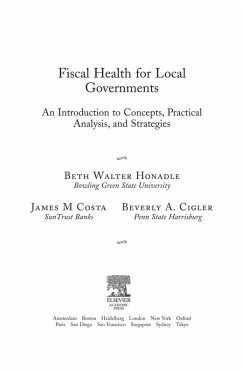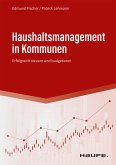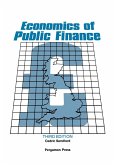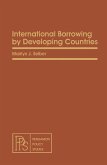The book stems from the Fiscal Health Education Program, an applied economics program at the University of Minnesota. It uses three measures of fiscal health - financial condition, trend analysis, and financial trend monitoring system - as the basis for advocating particular fiscal strategies.
The book examines the tools that can be used to assess the condition of a local government's fiscal health and some of the policy causes or remedies for certain situations, as well as some of the strategies governments can pursue to maintain and improve health.
It will serve as a primer for readers interested in understanding financial processes and alternatives, and as a practical guide for those who need access to fiscal measurement tools.
- How-to approach will appeal to readers who lack sophisticated knowledge
- Contains discussion questions and anonymous case studies of actual cities and municipalities
- Presents practical methods for identifying and solving common fiscal problems
Dieser Download kann aus rechtlichen Gründen nur mit Rechnungsadresse in A, B, BG, CY, CZ, D, DK, EW, E, FIN, F, GR, HR, H, IRL, I, LT, L, LR, M, NL, PL, P, R, S, SLO, SK ausgeliefert werden.
Hinweis: Dieser Artikel kann nur an eine deutsche Lieferadresse ausgeliefert werden.
"Fiscal Health for Local Government provides a pragmatic approach for analyzing the fiscal health of local governments. It presents several models for assessing expenditures, revenues and debt within the constructs of changing economic, demographic and political conditions, evolving intergovernmental patterns, and specific legal constraints. The book will be a useful guide for a wide audience including government officials, policy analysts and students of public administration and public finance. It will also be a welcome resource for courses in Fiscal Policy and Administration." -- Marilyn Rubin, Professor, Economics and Public Administration, John Jay College, City University of New York









